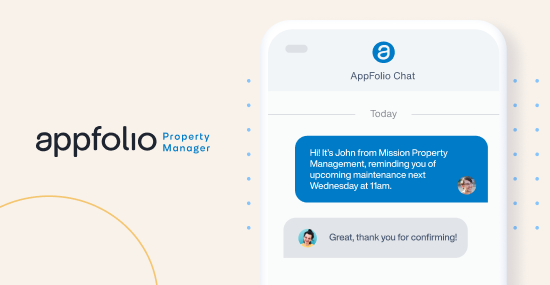Artificial Intelligence: What is it? And How Does it Apply to Property Management?

One of the more permanent changes of the past year relates to technology in the workplace. The pandemic-induced lockdowns accelerated the digital transformation of business that was already underway, and real estate is no exception, especially when it comes to the incorporation of artificial intelligence. To gain a better idea of the perception of AI in property management, AppFolio conducted a study on the crossover of these two disciplines.
What is AI?
When asked “I believe I have a basic understanding of artificial intelligence,” 85% of the property management executives, decision makers, and generalist property managers surveyed answered in the affirmative.
But when asked “Have you ever used or interacted with AI-based technology,” only 32% said yes. 49% said no and 19% were unsure. What’s interesting came from a follow-up question:
Which of the following technologies do you personally use?
- Travel recommendations
- Media recommendations
- Product recommendations
- Virtual assistants
- Smart home technology
- Health and fitness insights
- Home robots
- None of the above
These are all AI-based technologies, but no one answered “none of the above.”
The question that begs to be asked then, is “what is AI?”
In its simplest terms, artificial intelligence refers to systems that imitate human intelligence to perform tasks, and can improve themselves through the constant repetition of those tasks and based on the information they gather. The subset of artificial intelligence that most of us have interacted with is called machine learning. Machine learning uses algorithms to parse data, learn from that data, and make informed decisions based on what it has learned. Real world examples include virtual assistants, recommendation engines, tools that determine credit worthiness, software that sorts, tags, and categorizes photos, and technology for self-driving cars.
With a basic understanding of artificial intelligence, it is easier to see how it applies to property management.
AI Leasing Assistants
According to a 2018 Zillow report, renters who inquire about a rental listing expect to hear back from a property manager within 24 hours. The faster you can reply, the greater your chances of obtaining a signed lease. According to Zillow’s research, a response in the first 1-2 minutes of receiving the inquiry leads to a 40% chance of prospect engagement. Waiting even 30 minutes to respond plummets that likelihood to 10%.
AI leasing assistants work 24/7 as part of the leasing team to provide instant responses via text messages and email to prospective renters. Advancements in natural language processing are helping these “machines” sound more and more human while they continue to learn from every interaction to improve themselves. AI leasing assistants leverage integrated reporting technology to track leasing performance with accurate data, helping drive occupancy and operational efficiency. Property managers benefit from robust lead to lease data and insights, ultimately enhancing, optimizing and automating the leasing flow.
Manual entry & anomaly detection
Whether to spot spikes in utility bills, find accounting discrepancies, or simply parse bills and leases to compile income statements, the pattern-recognition and automation capabilities of AI is a powerful benefit to property management teams.
AppFolio’s AI in property management study revealed “improving employee experience” as the most valuable benefit of AI. Indeed, improving employee experience is an urgent to-do for the industry: While the average turnover rate across all industries stands at 22%, the property management industry suffers from a turnover rate of 32.7%. Anything that can lower this number — such as eliminating manual data entry and bill analysis — is in the industry’s best interest, and most property management professionals would agree: 80% of those surveyed said that creating accounting reports should be automated, and 75% listed auditing, financial diagnostics, utility billing, and entering bills. The common theme? These are time consuming tasks that do not necessarily benefit from a human touch.
In summary, thanks to artificial intelligence, property management is in the early stages of a technological revolution. As machine learning evolves into deep learning, turning the informed decision-making of AI into intelligent decision-making, team members will be free to focus more energy on delighting residents and owners, and less time on what is often perceived as tedious.
For a deeper dive into the coalescence of AI and property management, we invite you to check out our interview with AI expert and AppFolio Chief Technology Officer Andrew Mutz, along with several decision makers from various property management firms across the country. You can listen to the podcast episode here. Please enjoy!